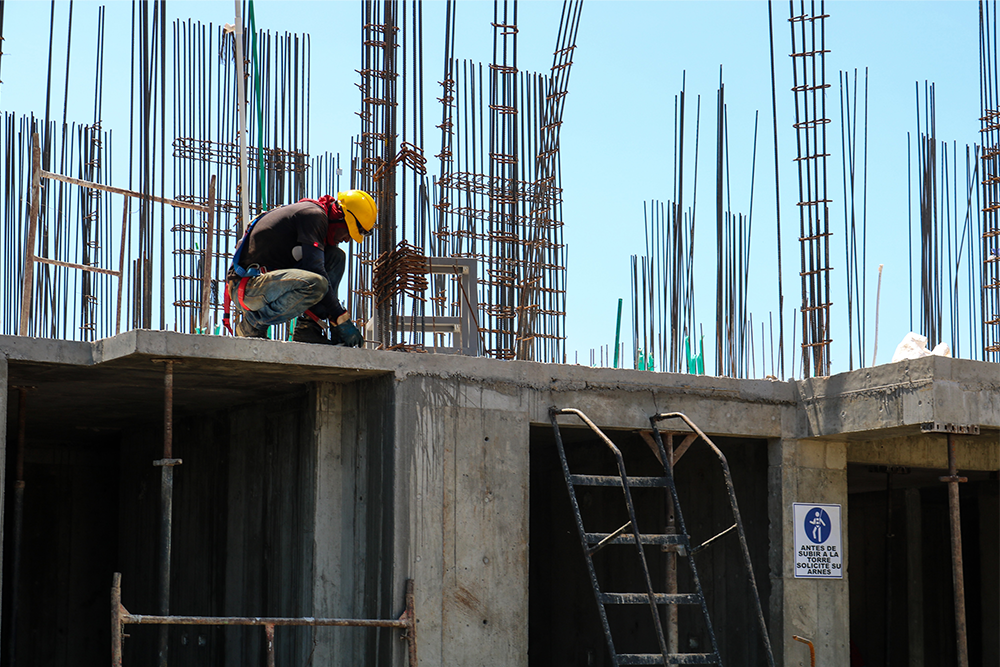Global Infrastructure Hub and IDB raise visibility of risk allocation to boost private investment in Brazil
In light of the potential for public-private partnerships (PPP) to contribute to a reduction of the 1.2 trillion USD[i] infrastructure investment needs of Brazil, the Global Infrastructure Hub (GI Hub) and Inter-American Development Bank have collaborated to make specialist risk allocation knowledge accessible to the public sector.
Chief among the GI Hub-IDB collaboration has been the translation into Portuguese of GI Hub’s PPP Risk Allocation Tool which is designed as a reference guide for governments and other relevant stakeholders in deciding on the appropriate allocation of project risks in a given PPP project, as well as potential risk mitigation measures. The translation responds to the need noted in IDB’s From Structures to Services Report that Latin America and the Caribbean needs to become more efficient at investing in infrastructure, and that PPPs form part of the solution.
Released in Portuguese in 2020, the tool contains a set of annotated risk allocation matrices for PPP transactions across 18 types of projects including energy, transport, water and sanitation, communication and social infrastructure sectors. It also details risk mitigation measures available and identifies potential sources of government support.
Commenting on the value of the tool and its translation for Brazil, GI Hub CEO Marie Lam-Frendo said: “Issues with risk allocation are a well-known blocker to greater investment in infrastructure by the private sector. The Brazilian market is attractive to many investors and the tool will contribute to help realising this potential. This tool being more accessible to practitioners can help clear the way for more efficient PPPs, which is increasingly important due to the economic impact of COVID-19.”
“Brazil and Latin America could and should obtain better results out of the investments made in infrastructure. Our publication shows that correctly assessing projects' risks, enhancing pre-projects, and reducing cost overruns and delays would increase 35% the value of the investment in infrastructure works. It represents money that the region cannot afford to keep wasting, even more on the post-pandemic era”, said Morgan Doyle, IDB representative in Brazil.
Brazil's Secretary of International Economic Affairs of the Ministry of Economy, Erivaldo Gomes said: “The foundations for a successful Infrastructure project, especially with private sector participation, rely on understanding and allocating the risks properly. The joint initiative from the GIH and the IDB to make the Public-Private Partnerships Risk Allocation Tool (PPPs) available in Portuguese is more than welcome to assist governments and the private sector looking for best practices in preparation of bankable and sustainable projects.
The document aims at improving Brazilian practitioners in the preparation of PPPs projects and it is closely aligned with Brazil's focus on increasing private participation in infrastructure through the different partnership models to address its infrastructure needs. It also reveals the importance of international organizations acting in an integrated manner to attract more private capital to the infrastructure sector in Brazil.”
The allocation and ongoing management of project risk is critical to the success of any PPP transaction and determines whether a PPP project will satisfy the needs of the government, achieve value for money for the public and be financially viable for the private sector. The tool enables practitioners to gain an overview of key risk areas, identify risk allocation trends and an insight into the rationale for the allocations and possible approaches to proactively manage risk.
The initiative is part of the GI Hub’s Brazil Country Engagement Program to help accelerate the development of institutional capacity and infrastructure markets, which has also seen it partner with IDB to deliver a recent webinar for government officials focused on key risks?and challenges for Brazil’s port privatization program.
ABOUT IDB:
The Inter-American Development Bank is devoted to improving lives. Established in 1959, the IDB is a leading source of long-term financing for economic, social, and institutional development in Latin America and the Caribbean. The IDB also conducts cutting-edge research and provides policy advice, technical assistance, and training to public and private sector clients throughout the region.
ABOUT Global Infrastructure Hub
The GI Hub is supporting the G20 to drive an ambitious agenda on sustainable, resilient and inclusive infrastructure. With offices in Australia and Canada, the GI Hub team support G20 governments with data-driven insights, sharing and advocating for leading practices, and action oriented programmes. Strategic partnership is at the core of what the GI Hub delivers through events, thought leadership and tools. The GI Hub was created by the G20 in 2014.

 View the PPP Risk Allocation Tool website
View the PPP Risk Allocation Tool website





